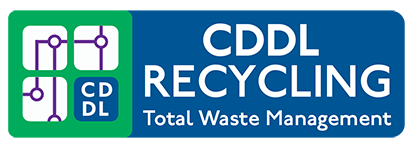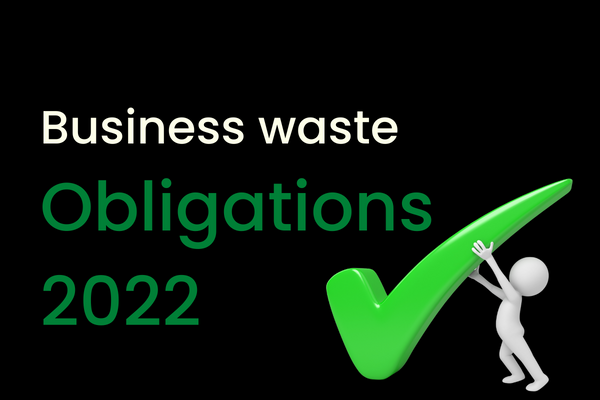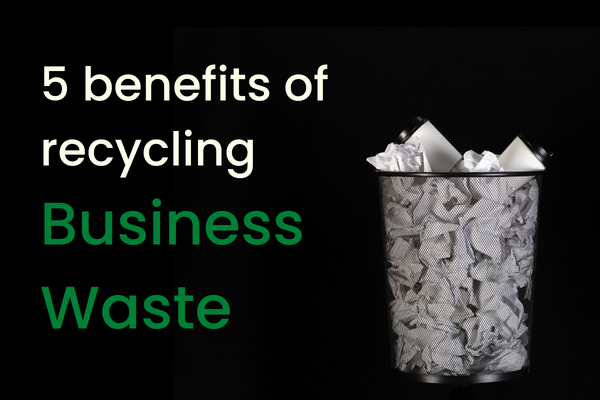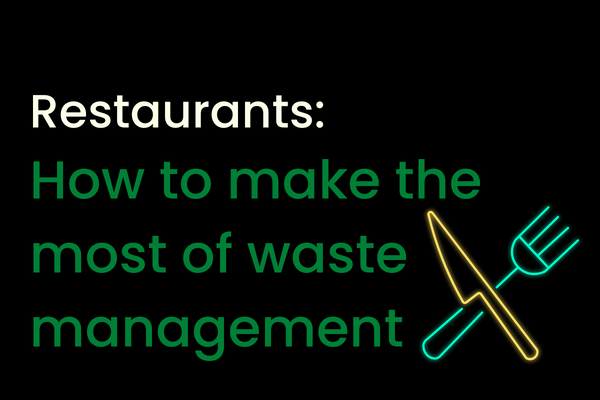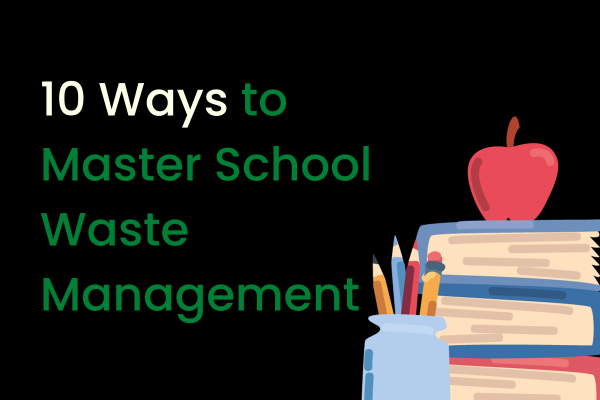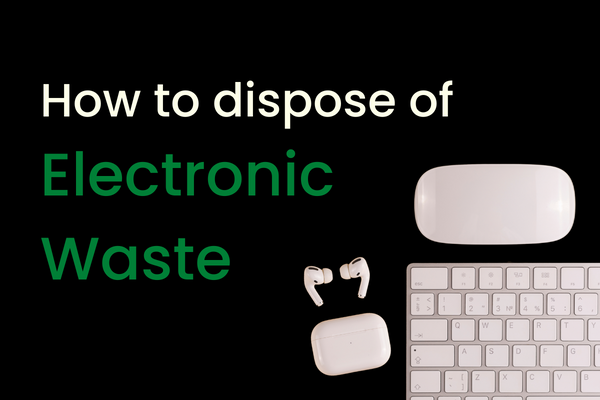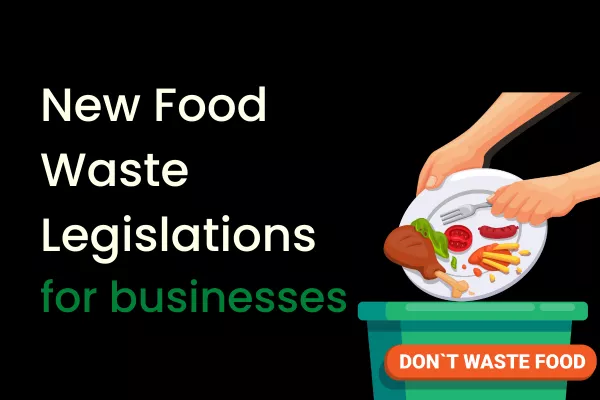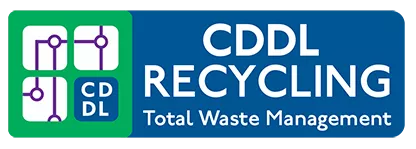What type of bin does my business need?
Size, material and purpose are all important factors to consider when choosing the right type of bin for your business.
You need to make sure you have enough space to store all your waste, that the material is durable enough to handle frequent use and that the bin will be put to good use in the most efficient way possible.
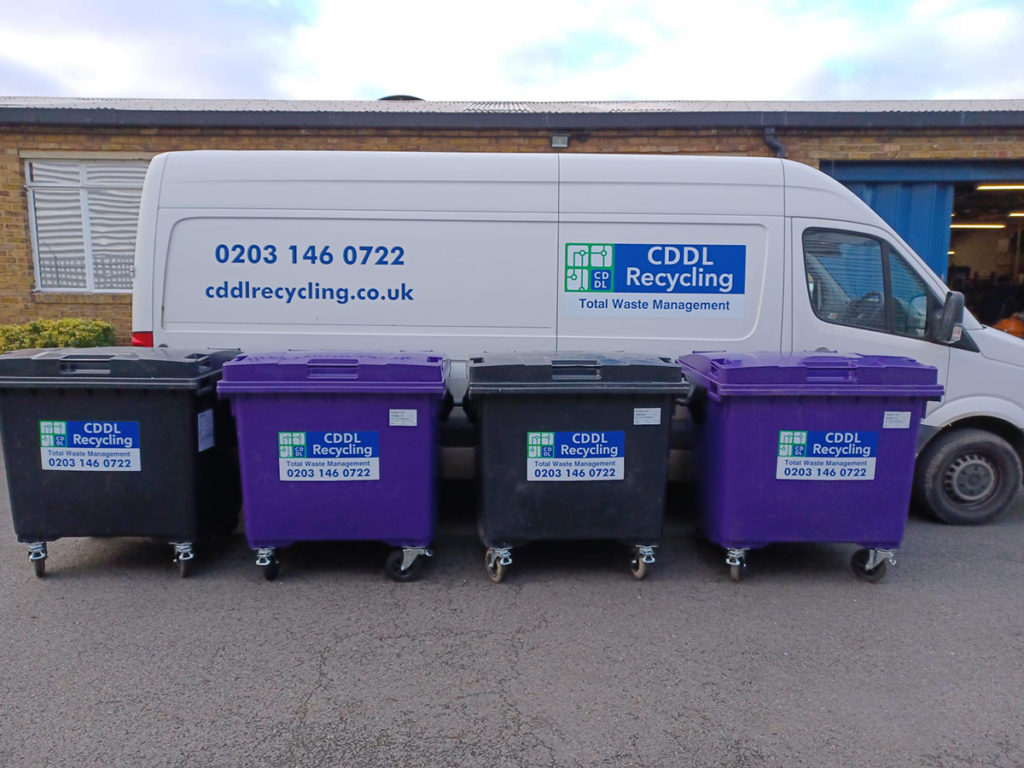
Consider your main types of waste
Working out your main waste type and how much you produce will help you decide what types of bins you will need.
There are four types of commercial bins available:
General waste
General waste includes all the waste that doesn’t fit into any of the other categories. It’s important to have a general waste bin because it ensures that all your other waste streams are separate and go to the right places.
Paper & Cardboard
If you have regular amounts of cardboard and paper waste you may consider a paper recycling bin, if you are dealing with confidential waste this is a separate issue and you will need to arrange a confidential paper collection to avoid your data falling into the wrong hands or breaking GDPR laws.
Food & Organic
Any food waste that is left over from preparing meals or from customers should be put into a food waste bin. This can then be collected and taken to a local authority food waste recycling facility.
Glass, Cans & Plastic
These materials can all be recycled, so having a designated receptacle for them will ensure they don’t end up in landfill and will also help you reduce your carbon footprint.
It’s highly likely that you will need a combination of these depending on your business. If you’re not sure what your main types of waste are, you can always ask your commercial waste provider for advice.
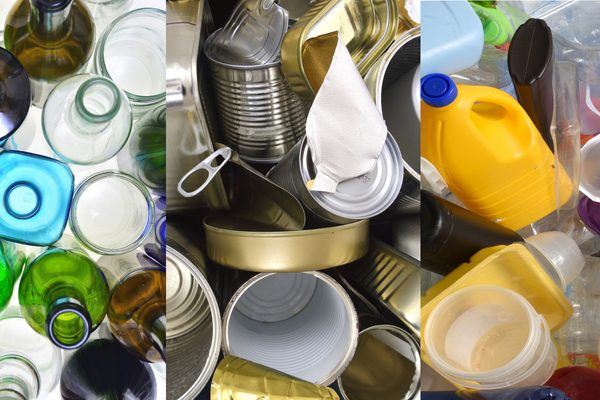
What’s the difference between domestic and commercial bins?
Commercial bins are larger and more durable than domestic bins. They also come with a range of different features to make them more suitable for businesses, such as lids to keep out vermin, wheels for easy manoeuvring and liners to make emptying them simpler.
Other differences are :
Size – Commercial bins can be much larger than domestic bins and often hold up to 3 or 4 times as much waste. This means they’re more suitable for businesses that produce large amounts of waste.
Price – Most commercial waste providers will charge for bins or bin rental (WE DONT!) so you may have to factor this into your costs.
What are the different sizes available?
Commercial bins are available in 240 litres (Similar to a domestic wheelie bin)
Or 1100 Litres (Larger industrial sized bins)

Getting the right commercial bin
A good waste management provider will offer a range of services and bin sizes to suit businesses of all types and sizes.
The best way to find the right bins for your business is to have a waste audit carried out, this will help determine which bins you need, how often you need them collected, as well as opportunities for recycling.
Where to store commercial bins
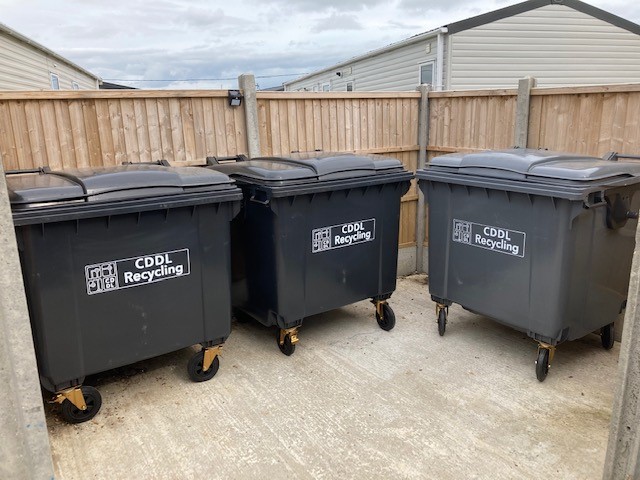
Whilst your bins need to be accessible to you and your staff it’s important to remember a few other factors.
You need to make sure they’re not stored in a way that will cause an obstruction, so people can still walk past them safely. If you have outdoor bins, they also need to be stored away from areas where customers or members of the public congregate, as this could cause health and safety issues.
Bins need to be in an area that is accessible to your waste collection service, so they can easily collect the waste without any obstructions.
If you’re storing bins indoors, make sure they’re in a well-ventilated area to avoid any smells.
If you have bins with lids, make sure the lids are kept shut at all times to prevent vermin
If you are dealing with cardboard recycling make sure this is under a covered area so it can easily be recycled.
How waste management works
Waste management is the process of dealing with waste, from its initial collection through to its final disposal. This includes everything from recycling and composting to incineration and landfill.
The first step in effective waste management is to reduce the amount of waste produced in the first place. This can be done by encouraging staff to recycle, using reusable products and avoiding single-use items where possible.
Once the waste has been produced, it needs to be stored in the appropriate bins until it can be collected. The type of bin you need will depend on the type of waste being stored. For example, paper and cardboard can be recycled, so they would go in a recycling bin, whereas food waste should go in a compost bin.
Once the bins are full, they need to be collected by a waste management company and taken to the appropriate disposal facility. This could be a recycling plant, landfill site or incinerator.
Waste management is an important part of running a business, as it helps to protect the environment and ensure compliance with environmental regulations.
Having the right bins is an important part of effective waste management, so make sure you choose the right ones for your business.
If you’re unsure which type of bin is best for your business, or how often they should be collected, speak to our team about commercial waste management to arrange a waste review.
